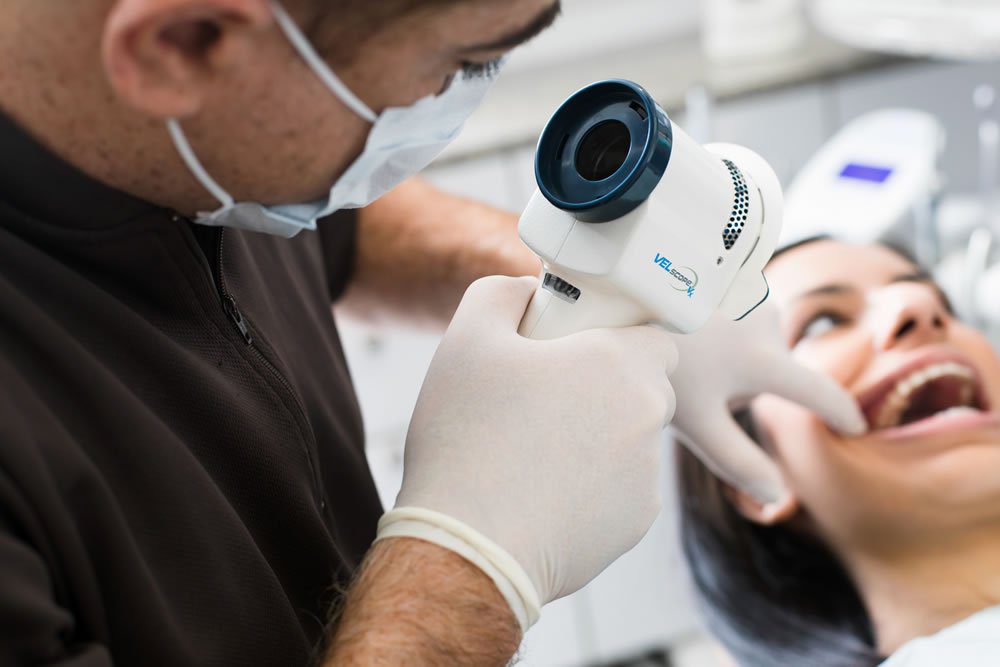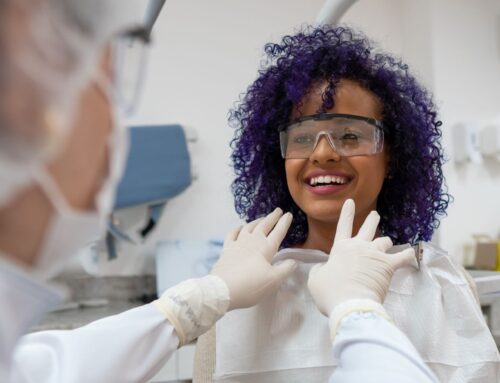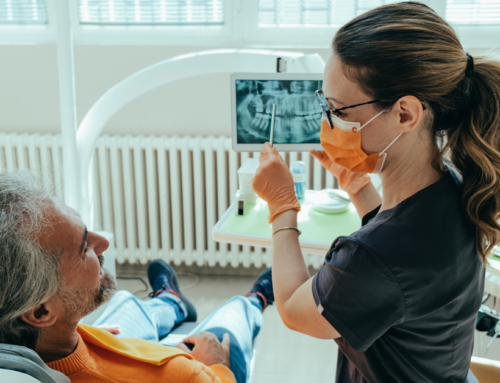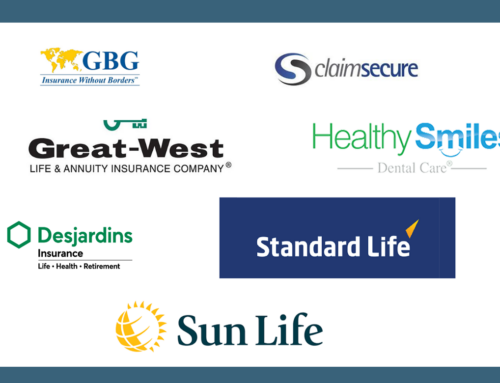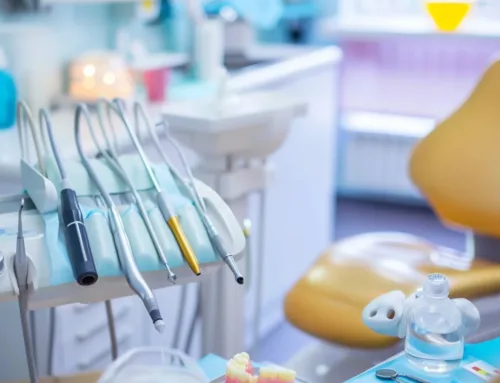Advancements Oral Cancer Detection & Treatment Technology
All over the world, doctors and medical scientists are working tirelessly to improve the tools, techniques and technologies used to detect and treat cancer so as to provide better outcomes for patients. In the field of oral cancer, many incredible developments have occurred in recent years that are allowing dentists to detect signs of oral cancer earlier than ever, and provide patients with more effective and less invasive treatment options.
The possibility of developing oral cancer at some point is an understandably scary concept for most people, but probably not one that you generally think too much about during a routine dental checkup. However, during those checkups, your dentist and hygienist are always on the lookout for potential dental health problems of all kinds, being attentive to identify abnormalities or unusual developments as they examine your mouth. To aid in their efforts, dentists utilize a variety of advanced diagnostic tools to clearly identify early signs of oral cancer with great precision.
In addition, cancer treatments in general have become much more effective in recent years thanks to significant improvements that have been made in the various therapies and surgical methods that are used. New approaches to oral cancer treatment have shown promising results in clinical research and trials, and are continually being explored in greater detail to further demonstrate their profound benefits to dental patients. Let’s now take a closer look at some of the more prominent innovations that have been taking place in the field of oral cancer detection and treatment.
Recent Advancements in Oral Cancer Detection Technology
Detecting oral cancer early begins first with spotting the common visual warning signs associated with the formation of cancer cells in the tissues of the mouth, including the gums, lips, cheeks, tongue, throat, and glands. This starts with a visual inspection by your dentist to look for things like abnormal discolorations, random sores, patches of red or white in the tissue, and other unusual symptoms. While the eye of a well-trained and experienced physician can certainly spot the telltale signs that are consistent with oral cancer, there are technological devices that can be employed to eliminate guesswork when there is uncertainty.
Wide-Field Fluorescence Imaging Techniques – Under natural white light, abnormal cells don’t always make themselves easy to spot. It’s possible that cancerous cells can be present but look similar in colour to the surrounding healthy tissue. However, certain types of fluorescent lights reveal these cells instantly. One of the most effective tools available for dentists to detect early signs of oral cancer is the VELscope Enhanced Oral Cancer Assessment System. Under the light of the VELscope, abnormal cells begin to react with the fluorescent light wavelengths and become clearly visible to the human eye. Once these spots have been pinpointed, further analysis can be conducted to determine exactly what type of cells these are.
Saliva-Based Oral Cancer Diagnosis – When a potentially cancerous cluster of cells is identified, the next step is to obtain a physical sample that can be analyzed with greater detail to make a definitive diagnosis. In most cases, this is done by biopsy, where a portion of cells from the affected area are removed for analysis. However, research is being done to create an effective cancer screening method using saliva. This approach has many advantages, such as being far less invasive for the patient, and samples being able to be obtained with much greater speed. This type of testing has great potential for rapid screening of large groups of people in a short period of time, and also shows promise as a simple method of monitoring post-op patients for signs of cancer regrowth.
Latest Developments in Oral Cancer Treatment Methods
Modern cancer treatments have resulted in significantly better outcomes for patients, and the techniques that have been developed are constantly being refined to continue this advancement of treatment efficacy. The introduction of many new technologies into the field of oral cancer treatments has made it possible to minimize the impact of surgery and chemotherapy on the quality of life of the patient throughout the entire process, as well as afterwards in recovery.
Reconstruction Using 3D Printing & Fabricating Technology – When surgical procedures are needed to remove cancerous tissue, it is also necessary to remove a portion of the surrounding area in order to achieve the necessary outcome. This often results in the removal of important structural sections of the mouth and jaw that must be reconstructed to provide the function and quality of life needed for the patient. Innovations in 3D printing and digital modeling tools have made it possible for oral surgeons to reconstruct patient mouths with greater precision and accuracy than ever before. The inclusion of 3D fabrication techniques in oral cancer treatments has produced benefits in the form of faster recovery, improved function, and better overall quality of life for patients.
Improvements in Intralesional Chemotherapy Procedures – The research occurring in the field of chemotherapy drugs has led to some truly amazing innovations. While the drugs themselves continue to be refined for greater effectiveness, alternate methods of application are also being tested to identify better ways of targeting the cancerous cells. For example, instead of injecting the chemotherapy compounds into the circulatory system to be carried through the veins and arteries to the cancer cells, intralesional chemotherapy uses injections directly into the cancerous mass. While still in the research stages, this approach to targeted cancer treatments has shown great promise.
How Do I Know If I Am at Risk for Oral Cancer?
As you can see, the future is certainly bright in the field of oral cancer treatment, with earlier detection and better outcomes occurring for patients every day that passes. However, it’s a fact that many patients don’t really know the specific factors that might put them at a higher risk of developing oral cancer. Like any other type of cancer, there is no one hard and fast rule that can tell you definitively whether or not you’re likely to get it, however there are some factors that are typically associated with increased risk.
In some cases, the likelihood of developing oral cancer is simply a matter of genetics. If you have a family history of oral cancer, or cancer in general, then you will likely want to have a discussion with your dentist during your next visit to the clinic. They may incorporate additional screening or testing procedures into your regular schedule of appointments to keep a closer eye on things and identify any potential signs as early as possible.
Lifestyle and health habits also factor into the level of risk someone may have of developing oral cancer. The links between tobacco use and cancer are well documented, so if you are a tobacco user you are most certainly at higher risk. We strongly urge you to cease all tobacco use as quickly as possible using whatever tobacco cessation aids you may need to make the process easier for you. Excessive alcohol consumption is another high-risk factor, so it’s important to reduce or eliminate the consumption of alcohol to lower your risk.
General health and nutrition also contribute to the likelihood of being affected by cancer. Maintaining a sensible diet and placing an emphasis on proper fitness and nutrition is a good idea for your well-being in general, but particularly so if you might be in a higher-risk group. Getting a good amount of exercise, improving nutrition, and seeing your doctor for regular check-ups are all foundational elements of a healthy lifestyle.
Book an Oral Cancer Screening Today & Put Your Mind At Ease
If you are curious to learn more about oral cancer, or are experiencing some symptoms that you believe may be warning signs of oral cancer, we encourage you to book an appointment to speak directly with one of the dentists here at Georgian Dental. With the latest in oral cancer screening technology, including the VELscope Enhanced Oral Cancer Assessment System, our team is eager to help get you the answers you need. We will gladly arrange for a comprehensive oral cancer screening and assessment at your convenience, and will happily provide any additional information or clarity on issues that are concerning to you.
It’s our goal to provide an exceptional dental care experience for all of our patients, no matter what specific reason they visit our clinic for. We look forward to seeing you again soon!
Appointment Request
If you’re interested in any of our procedures, and would like to meet with one of our dentists to discuss options, costs and get additional information, complete this short form and we’ll give you a call to arrange for a no-obligation appointment at our Barrie clinic.
